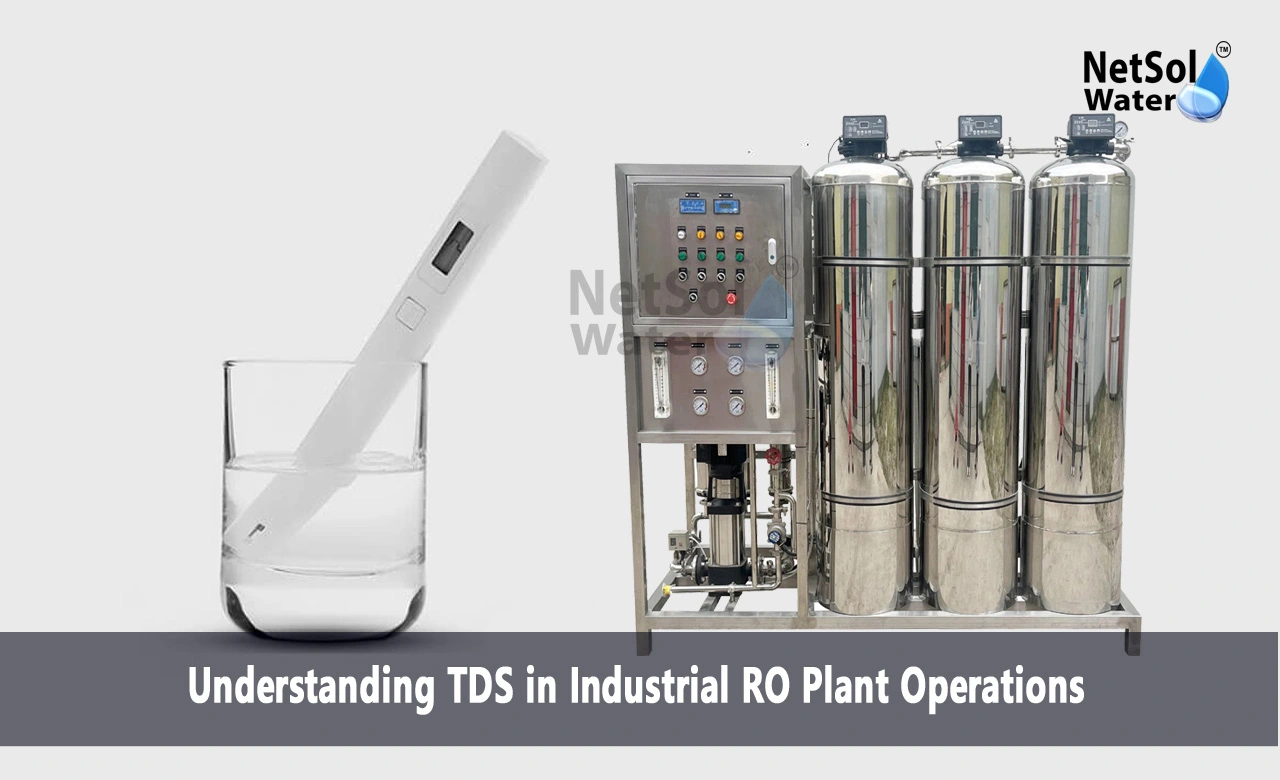What is TDS in Industrial RO Plant Operations?
Total Dissolved Solids (TDS) severely affect industrial RO plant operations. This article covers TDS importance its impact on RO plants and efficient management solutions for optimal plant operation.
What is TDS?
TDS comprises all dissolved constituents in water including minerals salts and metals. Industrial settings show large variations in TDS levels based on water supply and intended usage.
Why TDS Matters in RO Plants?
RO plants employ semi-permeable membranes to remove pollutants from water. High TDS levels can dramatically decrease membrane efficiency and longevity. Proper TDS management maintains plant performance and lowers operational expenses.
Measuring TDS
Accurate TDS measurement promotes effective RO plant operation. Several techniques exist:
1. Conductivity meters assess water's electrical conductivity correlating with TDS levels.
2. Gravimetric analysis evaporates water samples and weighs residual solids.
3. Online TDS monitors give real-time data for continual correction.
Impact of TDS on RO Membranes
High TDS levels cause many difficulties in RO plants:
1. Dissolved solids accumulate on membrane surfaces limiting efficacy.
2. Certain minerals precipitate and create scale on membranes limiting permeate flow.
3. Higher TDS levels demand additional pressure to reach acceptable permeate quality.
4. Excessive TDS causes early membrane breakdown leading to frequent replacements.
Optimizing RO Plant Performance
Maintain optimal performance despite fluctuating TDS levels with these strategies:
1. Implement effective pretreatment methods to lower incoming TDS levels.
2. Select membranes intended for high-TDS applications where appropriate.
3. Use adequate antiscalants to prevent scaling and fouling.
4. Develop and implement regular cleaning regimens to eliminate accumulated solids.
5. Adjust operational parameters based on TDS levels.
TDS Management in Different Industries
Industries oppose distinct TDS management difficulties in their RO plants:
Power Generation
Power plants deal with high-TDS cooling tower blowdown water. Effective management preserves boiler efficiency and reduces scale buildup.
Food and Beverage
Precise TDS levels ensure product quality and consistency. RO plants must carefully monitor desired mineral content.
Pharmaceutical
Ultra-pure water with exceptionally low TDS levels is necessary. RO plants must accomplish and maintain severe standards.
Wastewater Treatment
RO typically serves as a last polishing step. TDS management meets discharge regulations and facilitates water reuse.
Emerging Technologies for TDS Management
New technologies solve evolving TDS challenges:
1. Electrodialysis reversal employs electrical current and ion-selective membranes to remove dissolved solids.
2. Forward osmosis employs osmotic pressure differentials potentially reducing energy consumption.
3. Capacitive deionization uses electrodes to adsorb and remove ions affording advantages in specific applications.
4. Researchers develop new membrane materials with increased fouling resistance and selectivity.
Conclusion
Effective TDS management is critical for efficient industrial RO plant operation. Plant operators may enhance performance reduce costs and fulfilincreasing demands for high-quality water by employing efficient methods and harnessing emerging technologies.
As water scarcity and quality challenges rise worldwide efficient TDS management in RO plants becomes increasingly crucial. Stay informed about recent advances and be prepared to modify to address increasing difficulties in industrial water treatment.
To explore customised commercial RO plants, Industrial RO plants, ETP or STP solutions for your needs in your areas and nearby regions, contact Netsol Water at:
Phone: +91-965-060-8473, Email: enquiry@netsolwater.com



